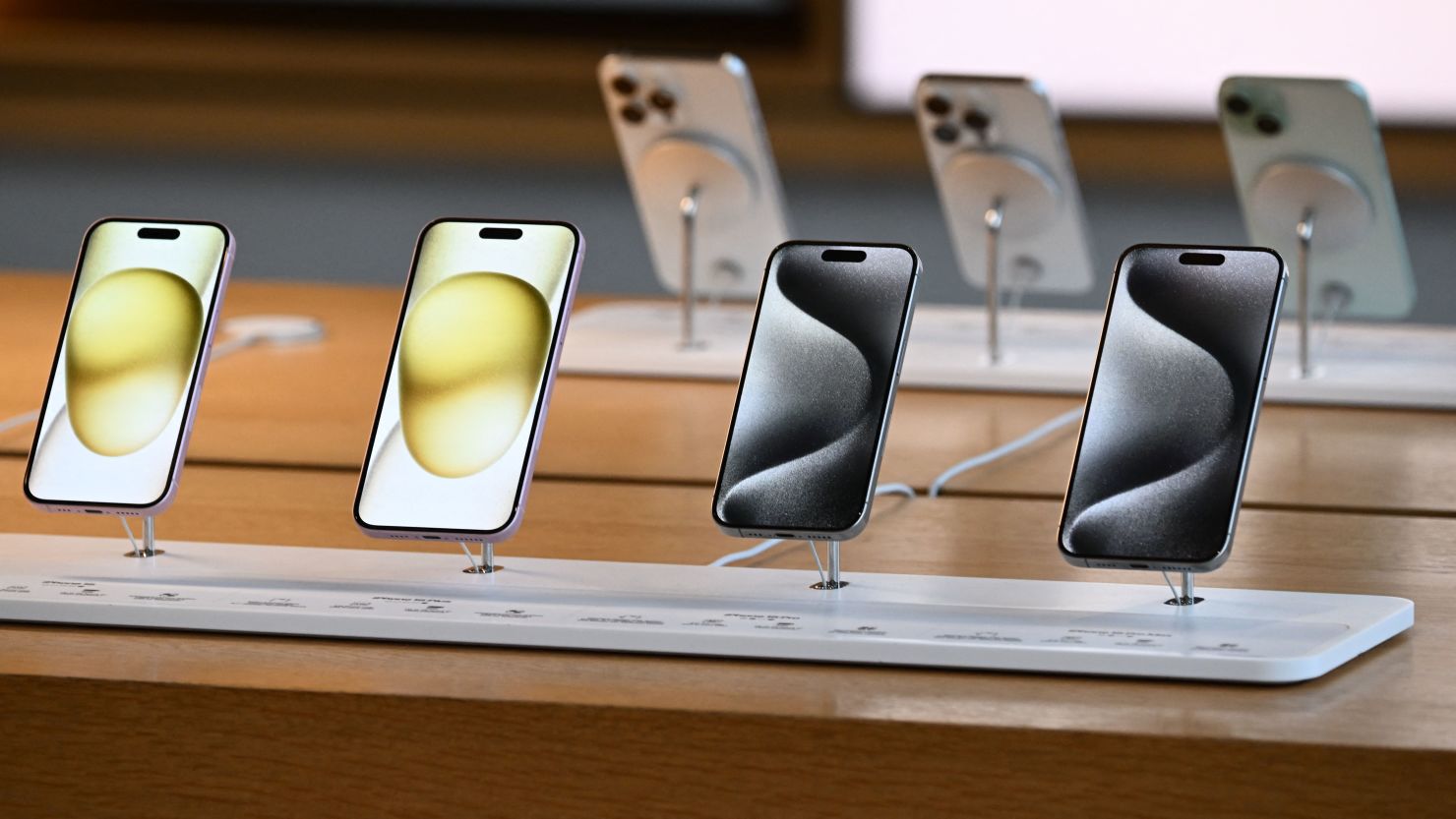CNN — “Buy your mom an iPhone.”
That was Apple CEO Tim Cook’s famous response at Vox’s 2022 Code Conference, when a reporter complained that her mother couldn’t see the videos she texted to her mom’s Android phone because they were grainy and slow.
It’s also a quip that US Attorney General Merrick Garland quoted – and sharply criticized – Thursday at a press conference announcing the Justice Department’s landmark antitrust lawsuit against Apple, in which the Biden administration and 16 states allege Apple is illegally abusing the iPhone’s monopoly power in the smartphone market.
The massive lawsuit against one of the world’s largest companies claims Apple is breaking the law by carefully curating its app store and customer experience, designed to lure customers in and keep them buying Apple products and services – to the exclusion of competitors.
Apple, in a statement, said it disagreed with the lawsuit and would fight it vigorously.
“This lawsuit threatens who we are and the principles that set Apple products apart in fiercely competitive markets,” the company said.
If successful, the suit could force Apple to loosen some of the restrictions it has placed on its “walled garden” approach to hardware and software. It could be made to open up its iPhone to alternative app stores and its technologies like iMessage with Android phones.
The Justice Department, in its complaint, highlighted five ways it says Apple is abusing its dominant position to the detriment of Americans.
Green bubbles
With iMessage, Apple created an enhanced text messaging service that allows people to seamlessly communicate with one another, sending rich text, high-quality video and audio that uploads almost instantly – as long as it’s sent to another iPhone customer.
When those messages get sent to people with Android phones, they appear grainy, they can be slow to load, and they can miss out on key features like emoji responses, editing functionality and end-to-end encryption. The dreaded “green bubbles” that mark Android users within iMessage – and particularly the lower-quality performance – are illegal, the Justice Department alleges.
“As any iPhone user who has ever seen a green text message, or received a tiny, grainy video can attest — Apple’s anticompetitive conduct also includes making it more difficult for iPhone users to message with users of non-Apple products,” Garland said on Thursday. “As a result, iPhone users perceive rival smartphones as being lower quality because the experience of messaging friends and family who do not own iPhones is worse — even though Apple is the one responsible for breaking cross-platform messaging. And it does so intentionally.”
Apple last year said it would adopt a new standard of technology for communication with Android phones that will open up some, but not all, of those features. The green bubbles will remain.
Apple Pay exclusivity
Apple helped revolutionize the way we pay for things, tying customers’ credit cards to technology inside iPhones to make payments more secure and seamless. And Apple takes a tiny payment for each transaction.
But Apple Pay is the only way iPhone owners can pay for stuff using that technology on an iPhone. Apple, citing security reasons, doesn’t allow third-party apps to access the chip that allows for iPhones to make mobile payments. It also could entice some customers to stick with iPhones when they’d otherwise switch to a competitor, the lawsuit alleges.
“Apple also deprives users of the benefits and innovations third-party wallets would provide,” the Justice Department said in its complaint. “Cross-platform digital wallets would offer an easier, more seamless, and potentially more secure way for users to switch from the iPhone to another smartphone.”
Making rivals less useful than Apple Watch
Apple Watch, one of Apple’s most successful products, is not compatible with Android phones – on purpose, the Justice Department alleges.
Although some smartwatches work seamlessly with any kind of smartphone, Apple Watches, a market leader, require iPhones to operate. That locks customers into Apple’s ecosystem of hardware and software, forcing Apple Watch customers to buy iPhones.
“Apple uses smartwatches, a costly accessory, to prevent iPhone customers from choosing other phones,” the Justice Department said in its complaint. “Having copied the idea of a smartwatch from third-party developers, Apple now prevents those developers from innovating and limits the Apple Watch to the iPhone to prevent a negative ‘impact to iPhone sales.’”
Banning third-party app stores
The only way to get apps on an iPhone is through Apple’s proprietary app store. Apple has long claimed that its approach to maintaining what apps can and cannot be used on an iPhone helps customers. It prevents spam and harmful apps, Apple says.
It forces apps into Apple’s onerous limitations and expensive 30% commissions, the Justice Department argues. And it limits competition.
For example, the Justice Department cites cloud-based gaming app stores as a service that Apple illegally prevents from appearing on an iPhone. Companies that want to stream games to customers have to load each individual game to the app store, which prevents companies from marketing and selling potentially powerful and popular competitive technology to customers.
Restricting super apps
Apple forces app developers to write code specifically for its operating system, restricting developers from coding using universal languages that could offer a single app experience across any device.
That prevents apps from becoming “super apps” – apps that run identically on Apple’s iOS iPhone operating system and Google’s Android OS. Apple also restricts “mini programs” – apps within apps that effectively run on the web. The Justice Department says that requirement locks developers into Apple’s system.
“Since at least 2017, Apple has arbitrarily imposed exclusionary requirements that unnecessarily and unjustifiably restrict mini programs and super apps,” the Justice Department said in its complaint. “Apple exerted its control over app distribution to stifle others’ innovation.”















